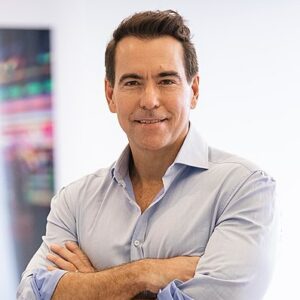He was a 30-year-old video gamer with a kid’s unkempt haircut and a degree in physics, not economics. A man-child so undisciplined he was caught playing “League of Legends” during a pitch meeting with one of the world’s largest venture capital (VC) companies.
Across the virtual table was a 51-year-old billionaire dubbed by Forbes as “Wall Street’s hottest dealmaker,” a veteran VC investor with years of experience in volatile markets.
How did this unknown novice, Sam Bankman-Fried — known by the shorthand “SBF” — convince a major Wall Street player like Orlando Bravo to trust him with $130 million to back his FTX crypto exchange scheme? How did SBF do the same with some of the most sophisticated investing pros in the world, firms like Sequoia Capital and Paradigm?
That’s one of the most compelling questions about the downfall of FTX, the biggest Wall Street scandal since Bernie Madoff. It’s also the premise of a class-action lawsuit on behalf of investors who say the major players went beyond their role as capital investors and became cheerleaders for this kid’s caper.
The lawsuit accuses the VC pros of “leveraging their professional reputations and media outreach capabilities to portray FTX as a trustworthy and legitimate crypto exchange,” when in fact they had not done their due diligence.
Regulators like Commodity Futures Trading Commissioner Christy Goldsmith Romero suggest the lack of due diligence may not have been a mere oversight.
“There are serious questions about whether they fulfilled their fiduciary duties here on behalf of their clients — what kind of due diligence did they conduct?” Goldsmith Romero asked during a Bloomberg TV interview.
“FTX CEO John Ray says in court and in the bankruptcy filings, there’s absolutely no record keeping. We’ve got an auditor no one’s ever heard of. How is that possible? Did they turn a blind eye to it? Were they just distracted by this promise of innovation?”
Something about Sam Bankman-Fried certainly spoke to Orlando Bravo. When Forbes named SBF one of the “30 Under 30” to watch in the world of finance, Bravo was one of the judges.
When Bravo first announced his investment in Bankman-Fried’s company, he called it “the most cutting-edge, sophisticated cryptocurrency exchange in the world.” He praised SBF’s pledge to “make a positive impact on the world through his business,” a reference to Bankman-Fried’s embrace of “effective altruism.”
Instead, Bankman-Fried and his fellow defendants were effectively committing theft, prosecutors now charge. They allegedly stole billions of dollars from FTX investors, spending the money on luxury cars, real estate, and lavish campaign contributions designed to raise their political profiles and buy powerful friends.
Politicians taking cash without asking questions is considered business as usual in Washington, D.C. But how did a 30-year-old with a mop top convince more sophisticated investors to hand over billions, no questions asked?
“Nobody wants to admit it, but there’s an emotional aspect to investing. The big players don’t want to get left out,” said David Sacco, practitioner in residence of finance from the Pompea College of Business at the University of New Haven. “And let’s face it — when it comes to technology, how something like crypto actually works, these investors can’t wait to figure it out before they write a check because, once you’ve reached the point where people can understand it, there’s no money left to be made.”
Sacco points to the example of Theranos and Elizabeth Holmes, the multi-million dollar investment fraud scheme.
“Investors pumped in something like $600 million and they went to her and they said, ‘Can we see how the machine works?’ And she said ‘no.’ And they still gave her the money.”
In fact, when Bravo and his fellow big players bought into FTX, the company was headquartered in the Bahamas “partly because 80 percent of its $1.1 billion in global revenue stems from a trading instrument illegal in the United States,” The New York Times reported.
But that didn’t stop Sequoia from commissioning a now-infamous profile headlined “Sam Bankman-Fried Has a Savior Complex — And Maybe You Should Too.” Is that investing, or endorsing? Either way, not long after Sequoia had to write off its entire $214 FTX investment as a loss.
This isn’t Bravo’s first problematic investment gamble. His firm Thoma Bravo was named in another class-action lawsuit claiming its business strategies led to cybersecurity deficiencies resulting in the headline-grabbing hack of SolarWinds, a leading provider of IT management software. (The lawsuit has since been settled.)
Sacco says betting big and losing big is standard operating procedure for major VC investors, particularly in a new, still-developing industry like crypto.
“At the speculative stage of investment, you almost have to put the cart before the horse if you want to have the potential for reaping a major return,” Sacco said. “If you’re an investor like Sequoia you’re like, ‘I took the risk. I was wrong, OK I lost two percent of my net assets under management — it’s not the end of the world.’”
But for investors without deep pockets, investors who listened to Bravo and Sequoia and the rest touting SBF’s “vision,” losing every invested dollar to this fraud truly hurts.
Will Bankman-Fried’s financial cheerleaders be held responsible? The courts will have the final say.

